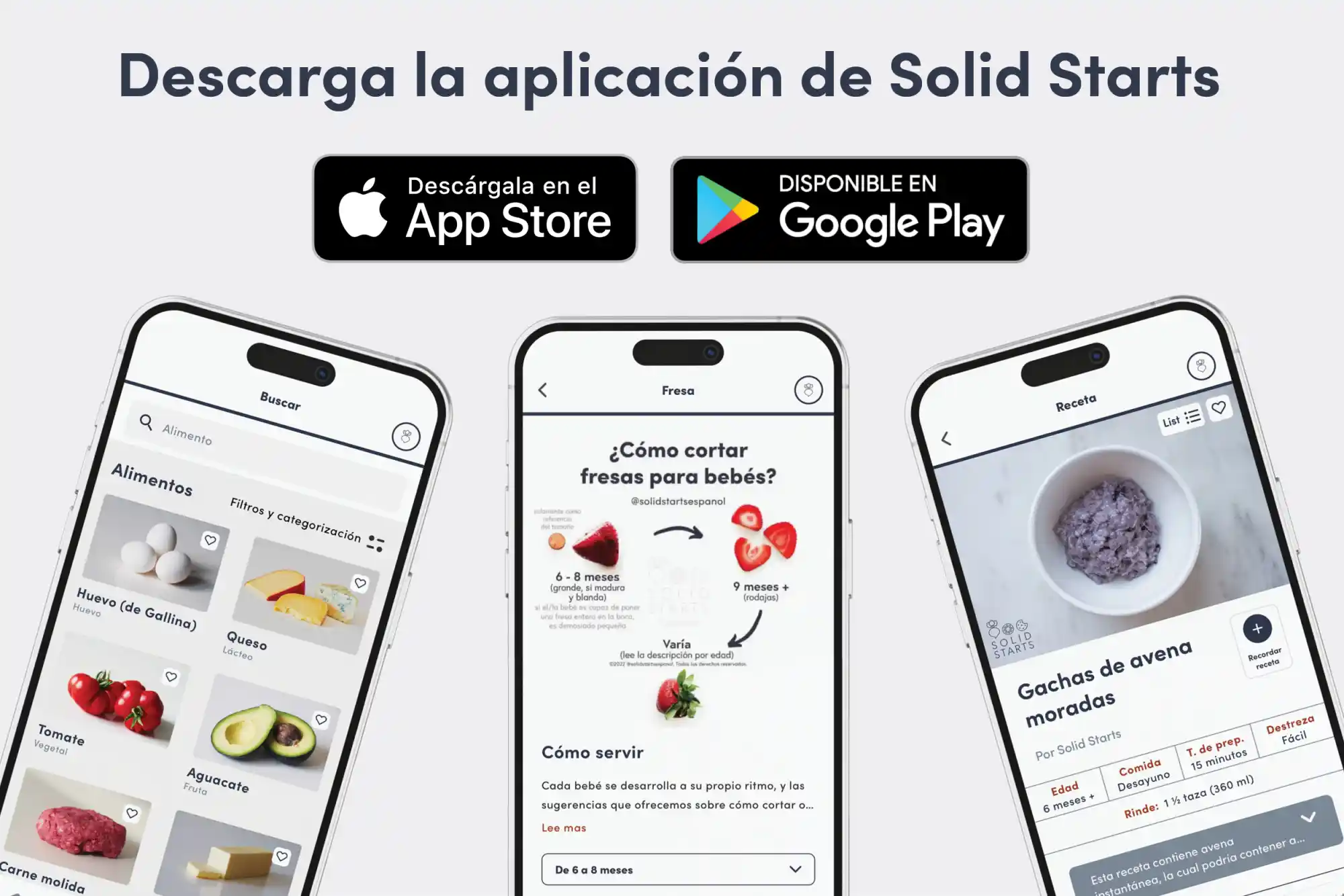Acceda a la base de datos First Foods® en Solid Starts App.
Leer másLemongrass
Hierba/Especia
Sugerencia de edades
6 meses
Alto contenido de hierro
No
Alérgeno común
No

When can babies have lemongrass?
Lemongrass may be introduced as soon as baby is ready to start solids, which is generally around 6 months of age.
Lemongrass originated in the tropics of South and Southeast Asia, where it has been used as food and medicine for centuries. The plant’s thick stems have a strong lemony aroma and robust flavor that add brightness to sauces, soups, and stews. While its leaves are not edible, they are often used along with the stems to make tea and flavor stock.
How do you serve lemongrass to babies?
Cada bebé se desarrolla a su propio ritmo, y las sugerencias que ofrecemos sobre cómo cortar o preparar determinados alimentos son generalizaciones para una amplia audiencia.
6 months old +:
Use lemongrass to season sauces and stews to share with baby, either powdered lemongrass or fresh or frozen lemongrass that has been finely chopped, grated, or pounded into a paste. If you'd like to share a dish with chunks or coin-shaped pieces of lemongrass, remove them before serving to reduce the risk of choking.
12 months old +:
Use lemongrass as you normally would in dishes, and continue to make sure that any large chunks of stalk get removed before serving. At this age, you can also serve lemongrass tea in an open cup, as long as it’s no longer hot.
Videos
Is lemongrass a choking hazard for babies?
It can be. While finely chopped or powdered lemongrass presents a low risk, thick pieces of lemongrass can be firm and challenging to chew, which are qualities that increase the choking risk. To reduce the risk, prepare and serve lemongrass in an age-appropriate way as described in the How to Serve section. As always, make sure you create a safe eating environment and stay within an arm’s reach of baby during meals.
Learn the signs of choking and gagging and more about choking first aid in our free guides, Infant Rescue and Toddler Rescue.
Is lemongrass a common allergen?
No, lemongrass is not a common food allergen, although allergic reactions to lemongrass have been reported. When handling lemongrass, make sure to wash the hands and any skin that comes into contact with the lemongrass as its essential oils can be irritating to the skin and cause allergic or contact dermatitis in certain individuals.
As you would when introducing any new food, start by offering a small quantity for the first few servings. If there is no adverse reaction, gradually increase the quantity over future meals.
Is lemongrass safe for babies?
Yes, lemongrass is generally recognized as safe in amounts typically used in cooking. Avoid offering lemongrass supplements and essential oils to babies and toddlers, as they have not been studied adequately in young children. Lastly, out of an abundance of caution, keep lemongrass-based insect repellents out of a child’s reach, as they can be toxic when ingested.
Is lemongrass healthy for babies?
Yes. While lemongrass isn’t typically consumed in amounts considered nutritionally significant, it does offer small amounts of various nutrients like iron, potassium, zinc, and vitamin C, as well as antioxidative properties.
When can babies drink lemongrass tea?
After the first birthday, you can offer lemongrass tea in a cup–just make sure it is no longer hot before serving. Do not give tea or beverages besides breast milk, formula, or small amounts of water to babies under 12 months of age.
Nuestro equipo
Escrito por
Consejos de expertos directo a tu bandeja de entrada
¡Suscríbete y recibe correos semanales con recetas, consejos y más!
Copyright © 2025 • Solid Starts Inc








